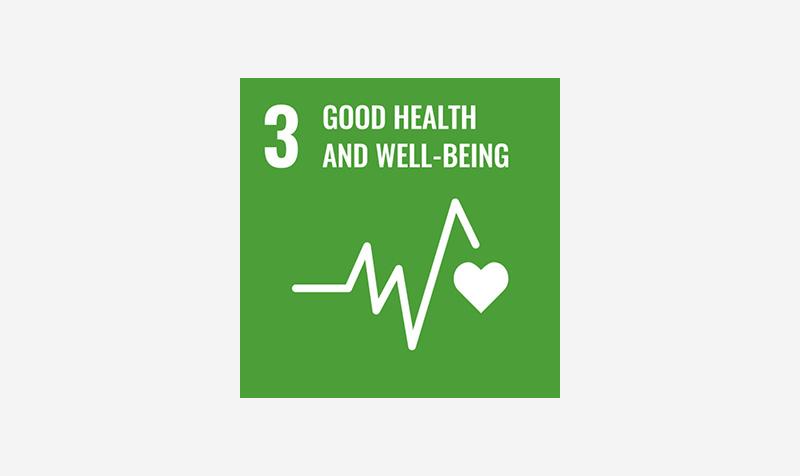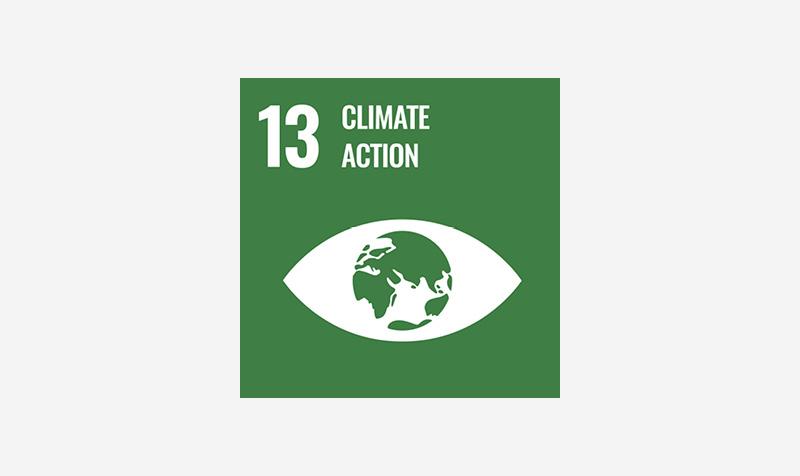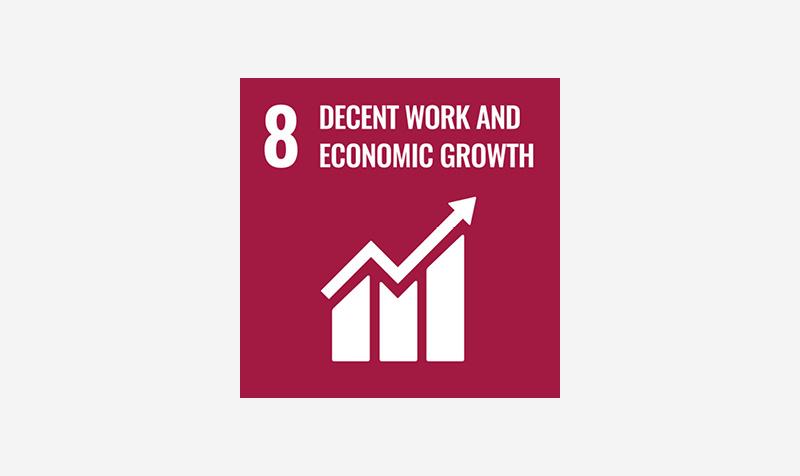Company engagement at CCLA is split across our three stewardship themes: health, work and environment. These case studies are selected for illustrative purposes and are intended to give a balanced picture of our engagement, both positive and negative.

Nestlé (nutrition)
Good nutrition is fundamental to good health and by engaging with food and beverage manufacturers on nutrition, we can play a role in improving public health. More than a billion servings of Nestlé products are consumed every day worldwide (Source: Nestlé), making the company a key player in this sphere.
We have been engaging with Nestlé on nutrition since 2017. In 2025, we took the role of lead investor for the Access to Nutrition Initiative coalition and attended the company’s AGM in Geneva. We asked the new CEO to prioritise this topic.
Since 2022, Nestlé has increased the age threshold from 13 to 16 for marketing unhealthy products; improved nutrition disclosure; and set a target on sales of healthier products. In 2025, it announced further commitments on disclosure. We will be visiting the company in October 2025 to work towards stronger targets on sales of healthier products.

AstraZeneca (workplace mental health)
AstraZeneca is one of more than 100 companies in the CCLA Corporate Mental Health Benchmark – Global 100+. Despite engagement calls with the company in April 2024 and March 2025, and a letter to the company’s CEO on behalf of a sizeable investor coalition annually, the company’s performance has steadily deteriorated. Having scored 60% in its 2022 benchmark assessment, the company scored just 40% in 2024, representing the largest deterioration of any company in the mental health benchmark over this time period.
Engagement with the company will continue. In April 2025, we voted against the re-election of the CEO, Pascal Soriot, reflecting our level of concern over the company’s record on workplace mental health.

Novo Nordisk (workplace mental health)
Novo Nordisk is one of more than 100 companies assessed and ranked annually in the CCLA Corporate Mental Health Benchmark – Global 100+. We have been engaging with the company on this topic since 2022.
In response to engagement, the company has clarified its management responsibility for mental health, disclosed health and safety certification in production facilities, and improved wellbeing performance data. As a result of these improvements, it has increased its benchmark score by 35 percentage points between 2022 and 2024, resulting in a move from Tier 5 to Tier 3. The company was assessed again in June 2025, with benchmark publication due in October.

Siemens (climate)
Climate change represents a significant threat to our planet, ecosystems and communities. As an industrial sector company, Siemens is defined as a ‘high impact’ company for its potential to contribute to climate mitigation. We have engaged with Siemens on climate action since 2023 through the Net Zero Engagement Initiative.
Specifically, we have been asking for a clearer climate transition plan, an increase in scope 3 emission reduction targets and better engagement on climate with suppliers. We attended the AGM in 2024 to reinforce these asks.
By early 2025, Siemens had raised its 2030 scope 3 emissions reduction target from 15% to 30% and expanded disclosure on supplier engagement. It has published a structured climate transition plan including a visual decarbonisation roadmap.
There is more to do, particularly around quantifying the impact of specific actions and we continue to engage with the company.

Zoetis (biodiversity)
Declining biodiversity presents growing systemic risks to environmental stability, economic security, and human wellbeing. As a healthcare company with impacts across animal pharmaceuticals and agriculture, Zoetis is considered systemically important for reversing nature loss. We began engaging in 2024 through the Nature Action 100 initiative.
In our first meeting, we encouraged Zoetis to align its sustainability strategy with biodiversity goals. We discussed biodiversity-related materiality assessments, antibiotic use, sustainable packaging, and consideration of frameworks such as the Taskforce on Nature-related Financial Disclosures (TNFD).
Zoetis acknowledged biodiversity has not yet been a core focus but committed to reassessing its material issues. It is shifting from antibiotics to preventive solutions, with vaccines now 25% of its portfolio, and piloting packaging improvements. The company is early in its approach but open to continued engagement.

Unilever (climate)
We have been engaging with Unilever on its climate transition for several years. Following constructive discussions, it became the first FTSE 100 company to seek shareholder approval for its transition plan at its AGM.
We welcomed Unilever’s updated decarbonisation roadmap now provides more detail, especially on indirect emissions. In response to our input, the company added a clear graphic in its reporting, outlining specific emissions reduction measures through to 2030 and quantifying each action’s contribution to overall emissions reduction. This added clarity improves understanding of Unilever’s strategy and carbon reduction plans.
Having pushed on climate-related lobbying and advocacy, we were pleased to see Unilever issue its first climate policy engagement review. This received a 100% score from InfluenceMap, a non-governmental organisation that assesses companies on their climate policy engagement. This is noteworthy, as only a handful of companies have achieved scores of more than 50%.

Coca-Cola (forced labour)
In 2024, the New York Times uncovered exploitative abuse, forced labour and coerced hysterectomies in the Maharashtra sugar cane industry in India.
CCLA led engagement with Coca-Cola on behalf of an investor coalition engaging sugar buyers in the region. We asked the company to tackle this issue and ensure effective grievance mechanisms for affected workers.
Coca-Cola agreed to implement training for mill management and labour brokers to improve recruitment and labour conditions. It also advanced plans to establish the Coalition for Responsible Sugar in India (CRSI).
Meanwhile, we are engaging with the Independent Sugar Workers Association (ISWA) and brokered the first meeting between ISWA and global sugar buyers (Unilever, Nestle, Coca-Cola, Mondelez, PepsiCo). In June 2025, the New York Times reported that the international pressure may be working with signs of change in the sugar industry in India. We will continue to engage on this topic.

LVMH Moet Hennessy Louis Vuitton (Living Wage)
CCLA began engaging with LVMH on the Living Wage in 2024 through the Platform for Living Wage Financials (PLWF). In the 2023-4 assessment, LVMH’s approach was rated ‘Embryonic’. The Group's decentralised structure is a particular challenge; they are comprised of 75 brands or ‘maisons’ which all have significant autonomy. Therefore, despite having a Living Wage commitment, it is unclear how LVMH implement this policy across their maisons.
In December 2024, CCLA and members of the PLWF engagement group met with LVMH, pushing for a strengthened approach on Living Wage. They shared that one of their maisons, Louis Vuitton, is working with the Fair Wage Network to engage suppliers and promote fair payment within their supply chains, but did not provide evidence of an improved group approach.
CCLA will continue to monitor LVMH’s progress and engage when their next assessment is published in late 2025.

Engaging with the Home Office (modern slavery)
Modern slavery exists somewhere in the supply chain of every business and as investors, we have a duty to work with companies to tackle this problem.
Case studies from our work have supported the Home Office Forced Labour Forum in a project to update statutory guidance for the Modern Slavery Act’s Transparency in Supply Chains provisions.
In March 2025, the Home Office published updated statutory guidance, drawing on and referencing CCLA’s UK Modern Slavery Benchmark framework. Discussions with the Home Office continue.
Progressive policy and regulation is a key lever for bringing about systemic change. CCLA’s Dame Sara Thornton, former UK independent anti-slavery commissioner, leads this work on our behalf.